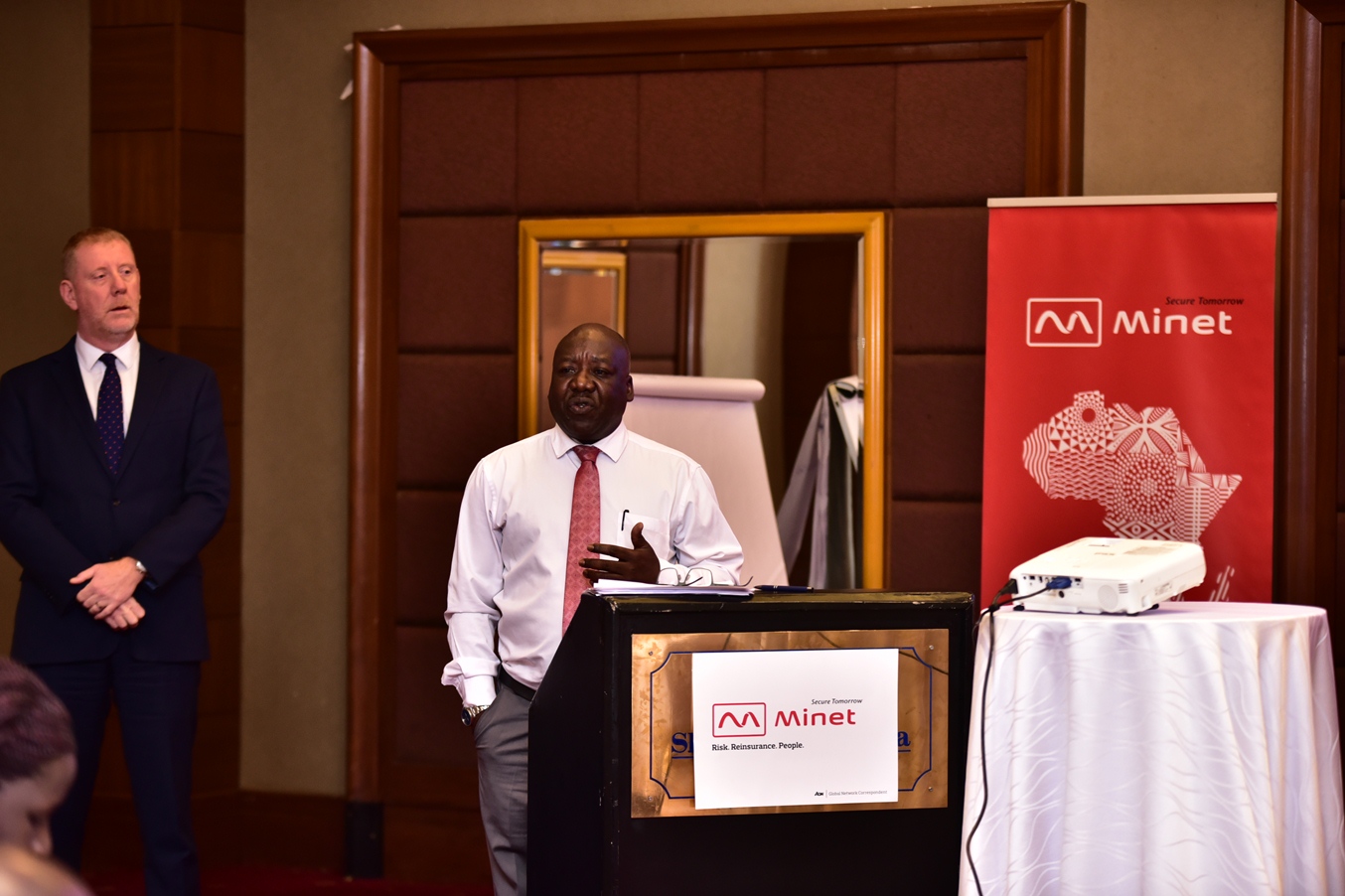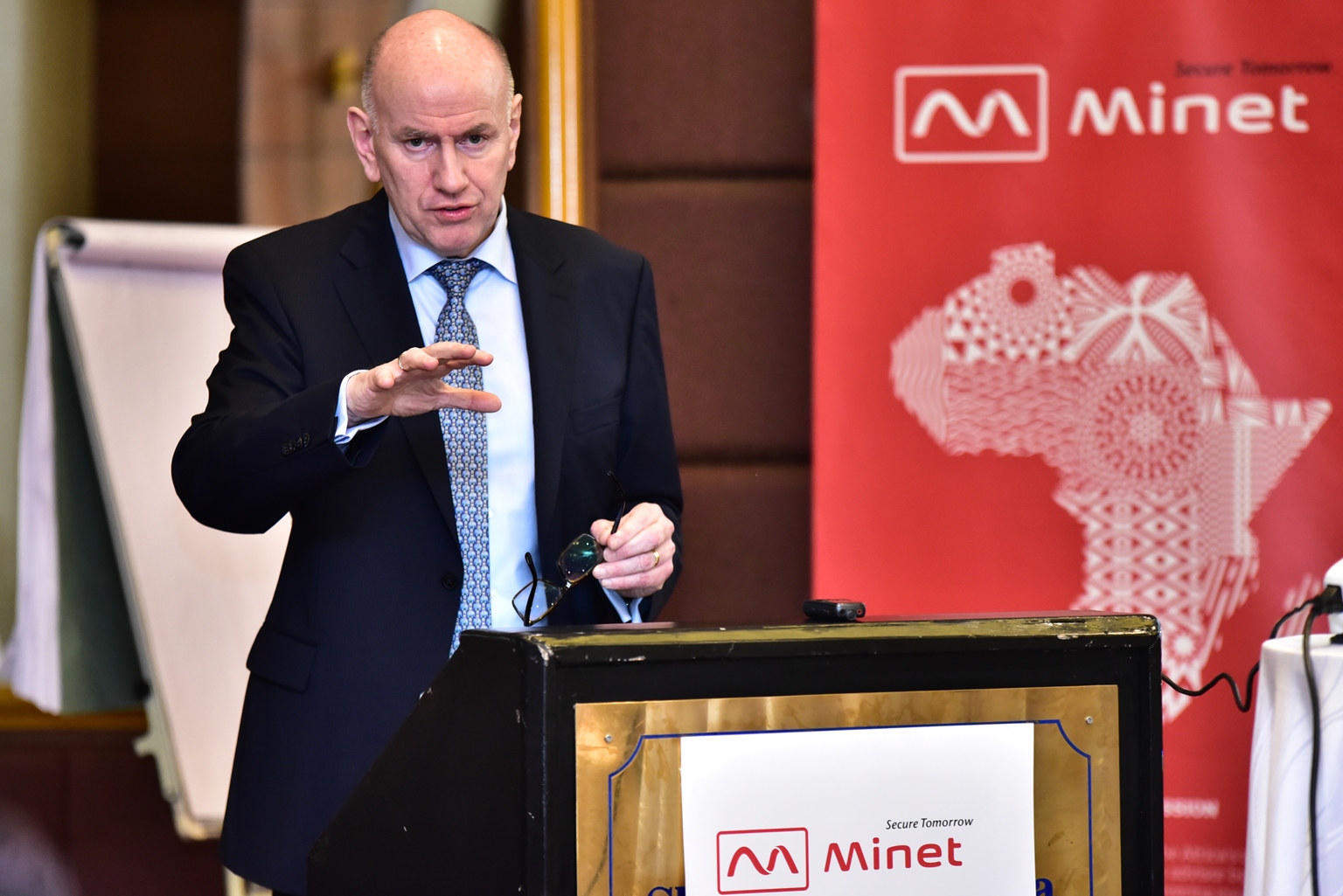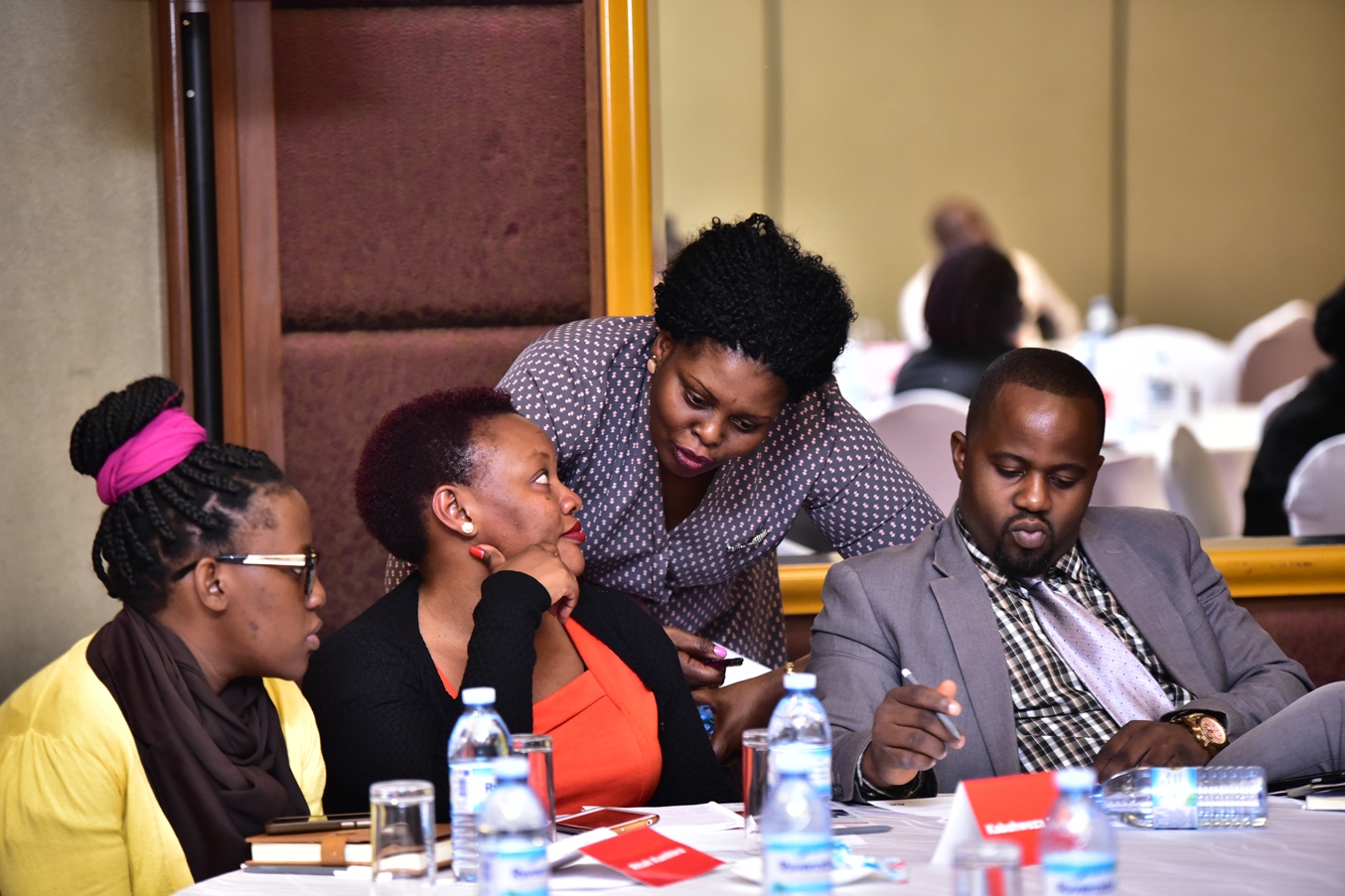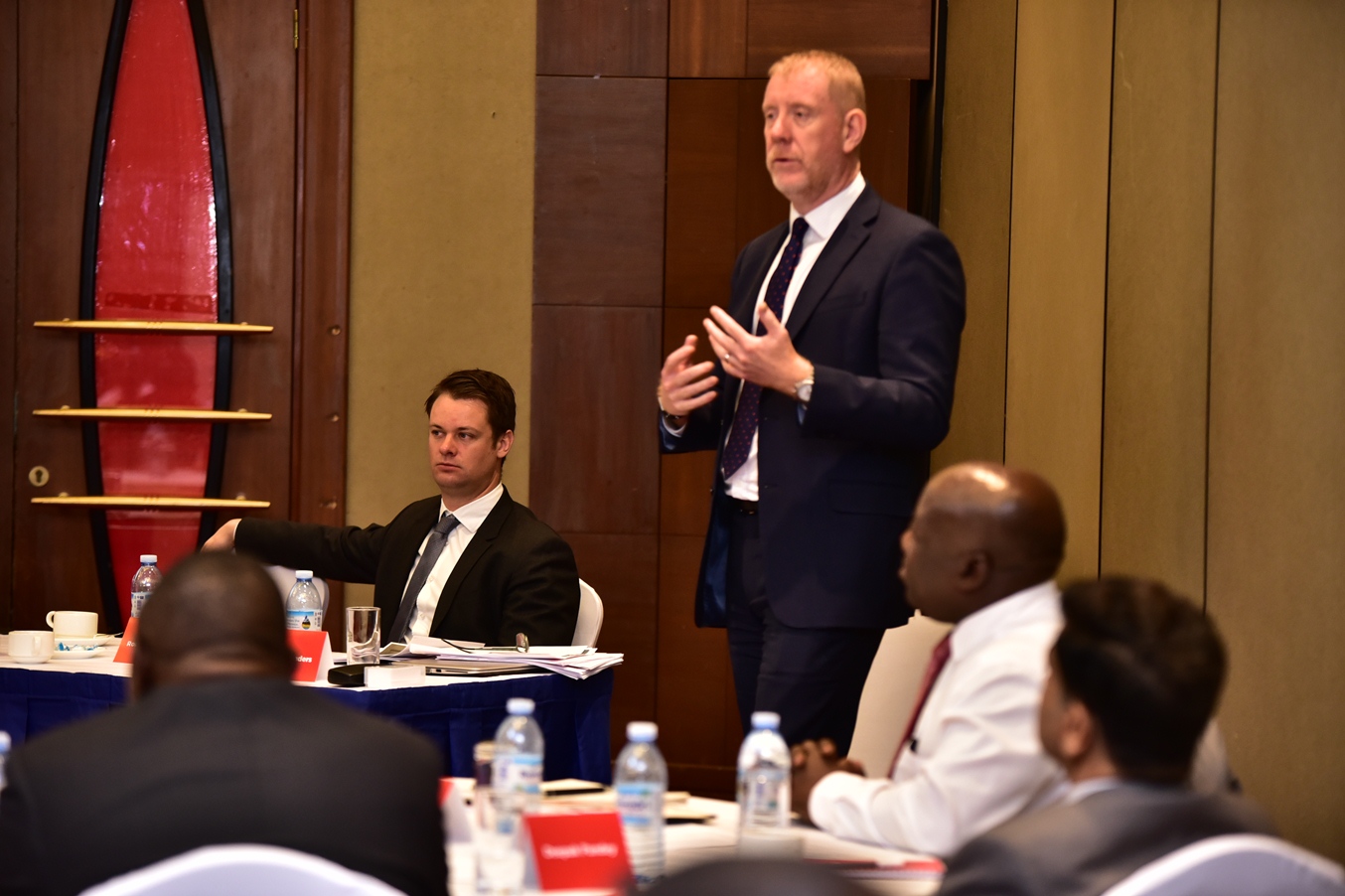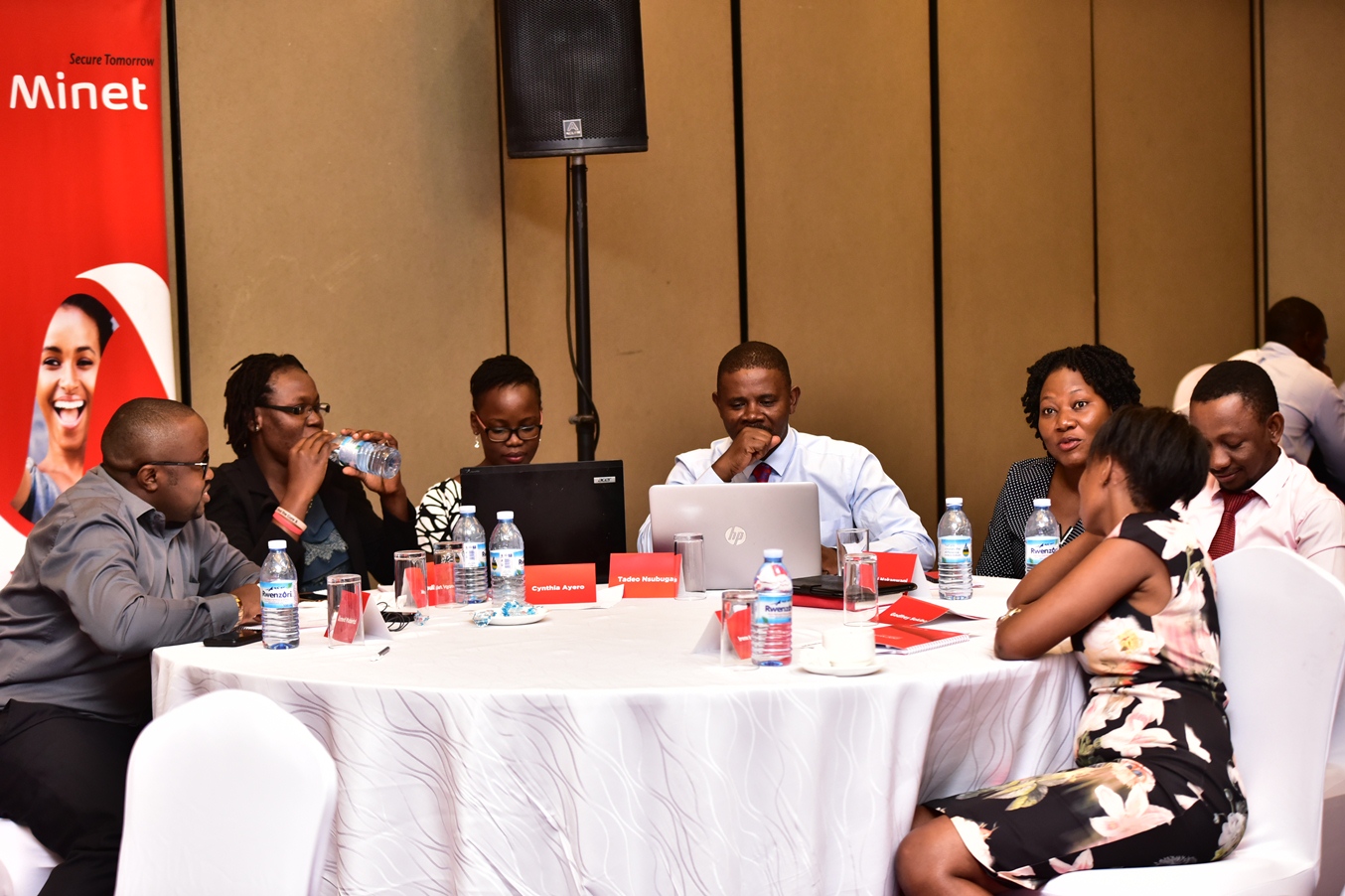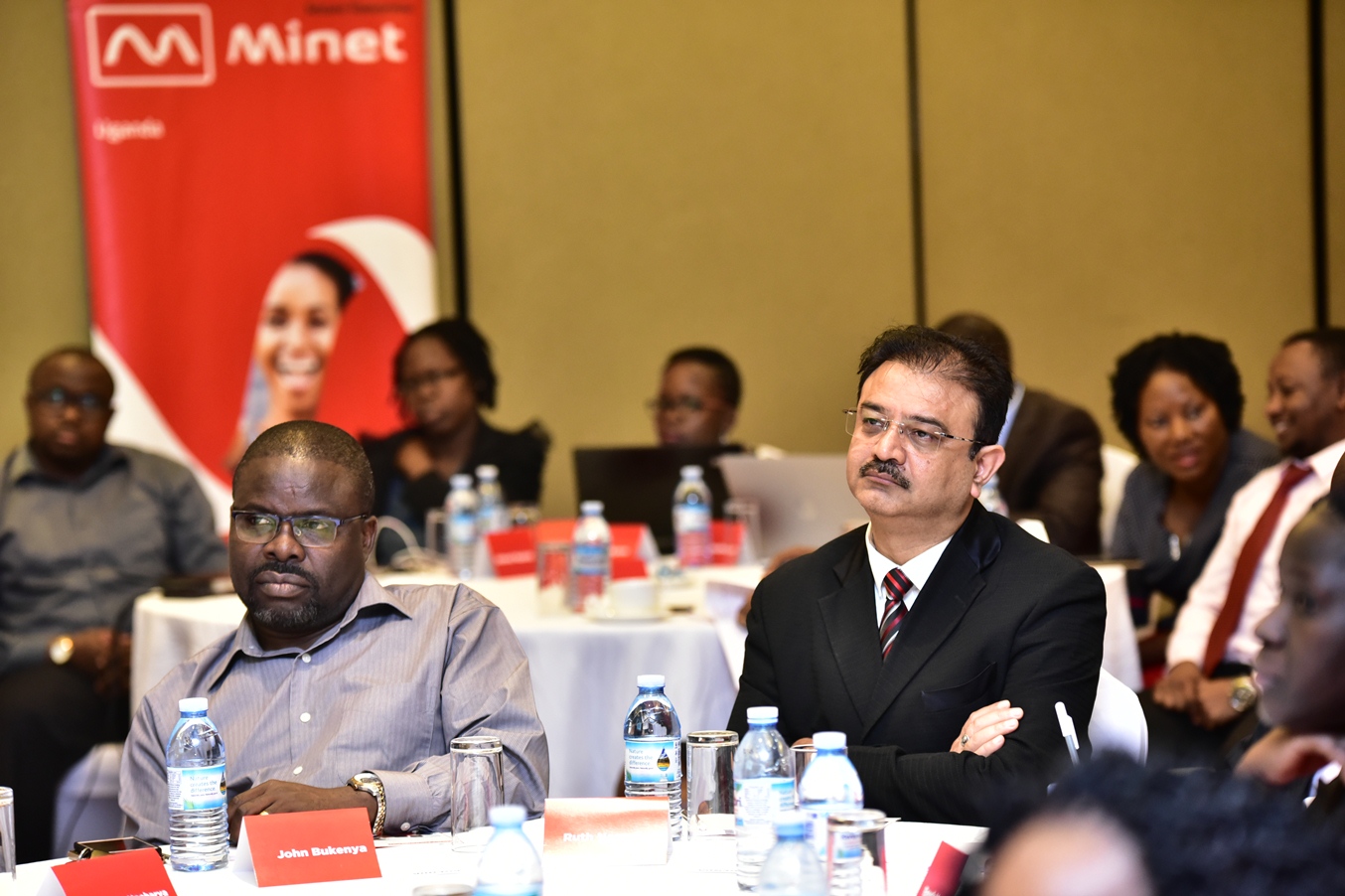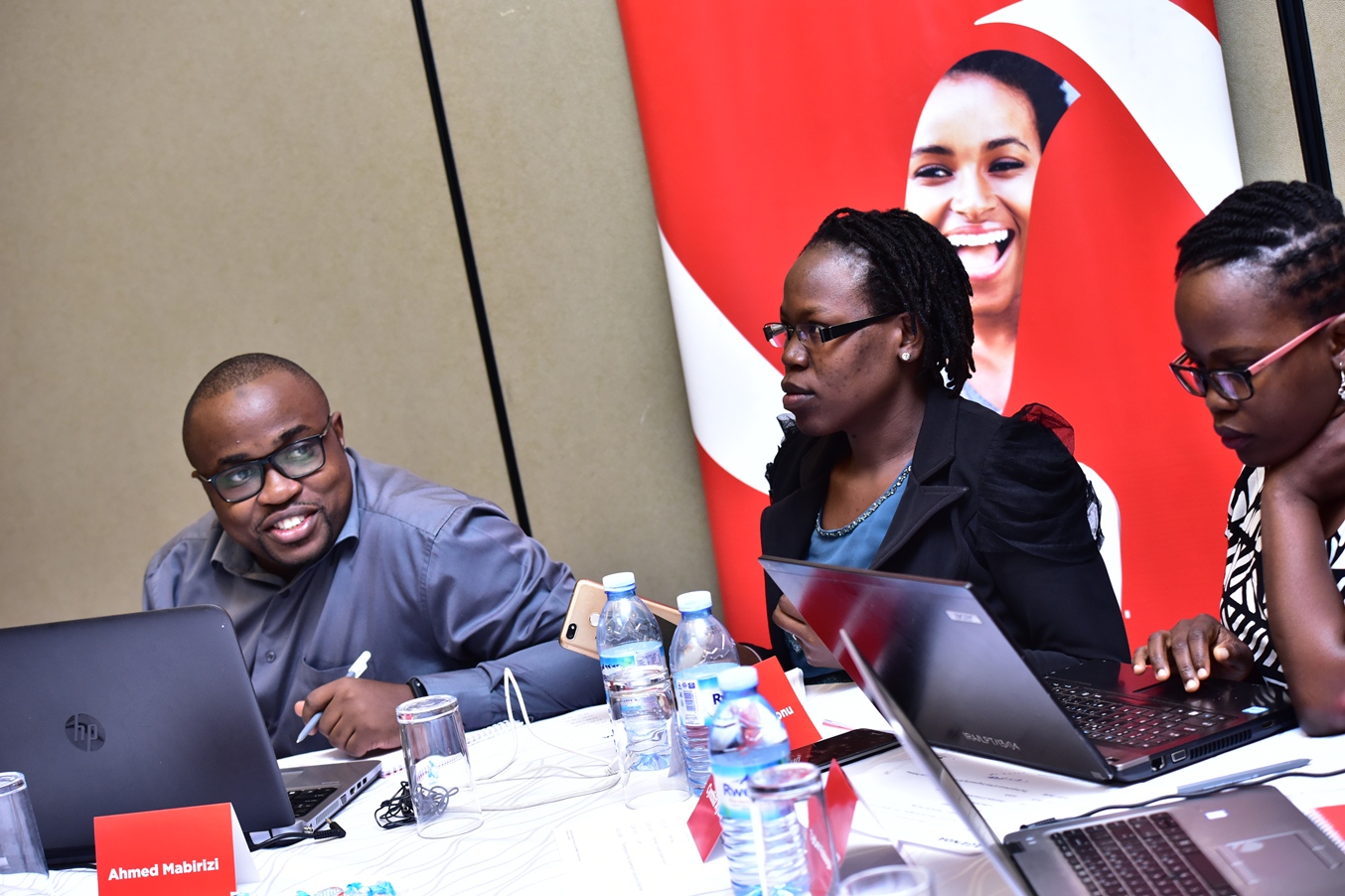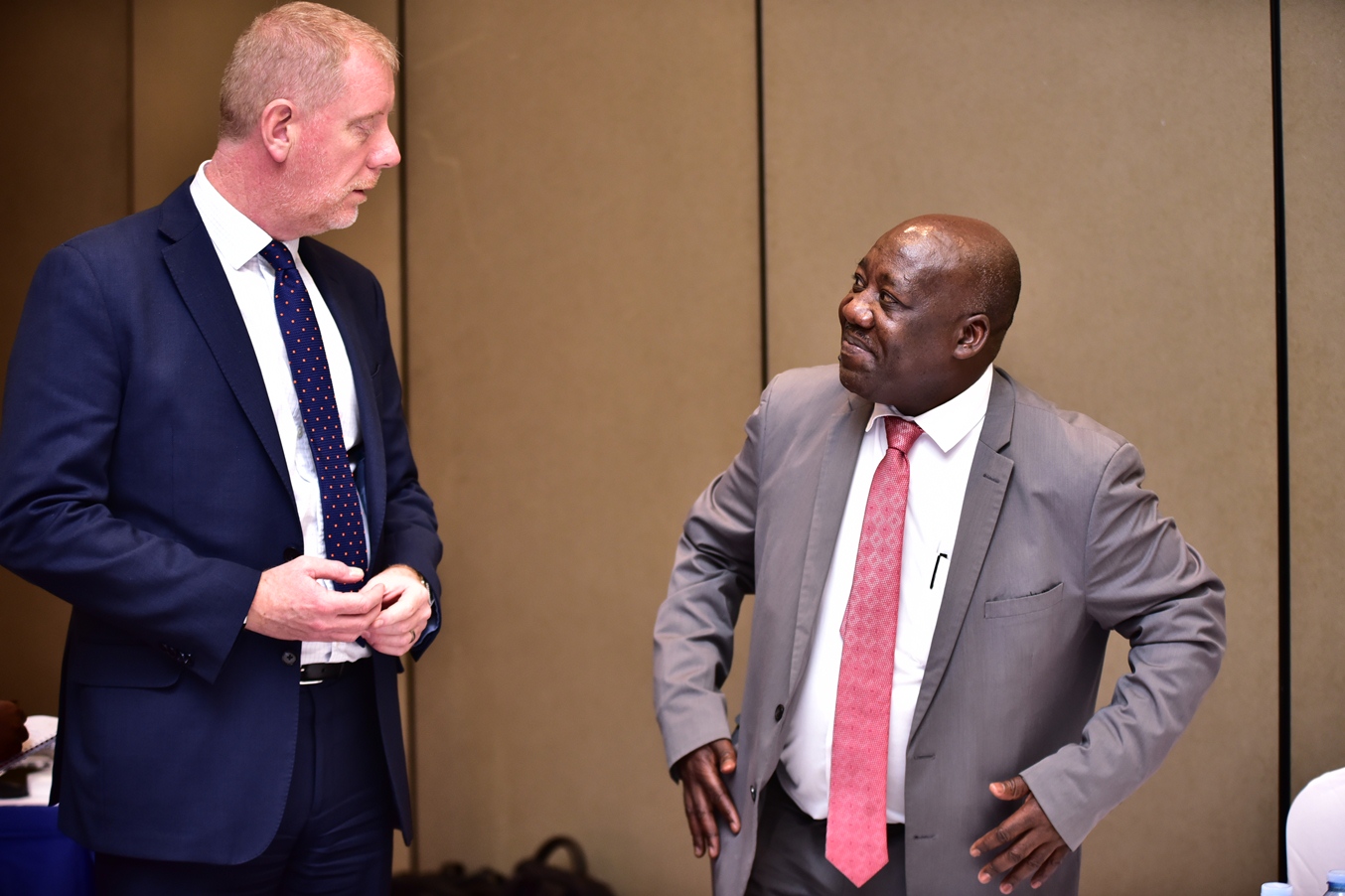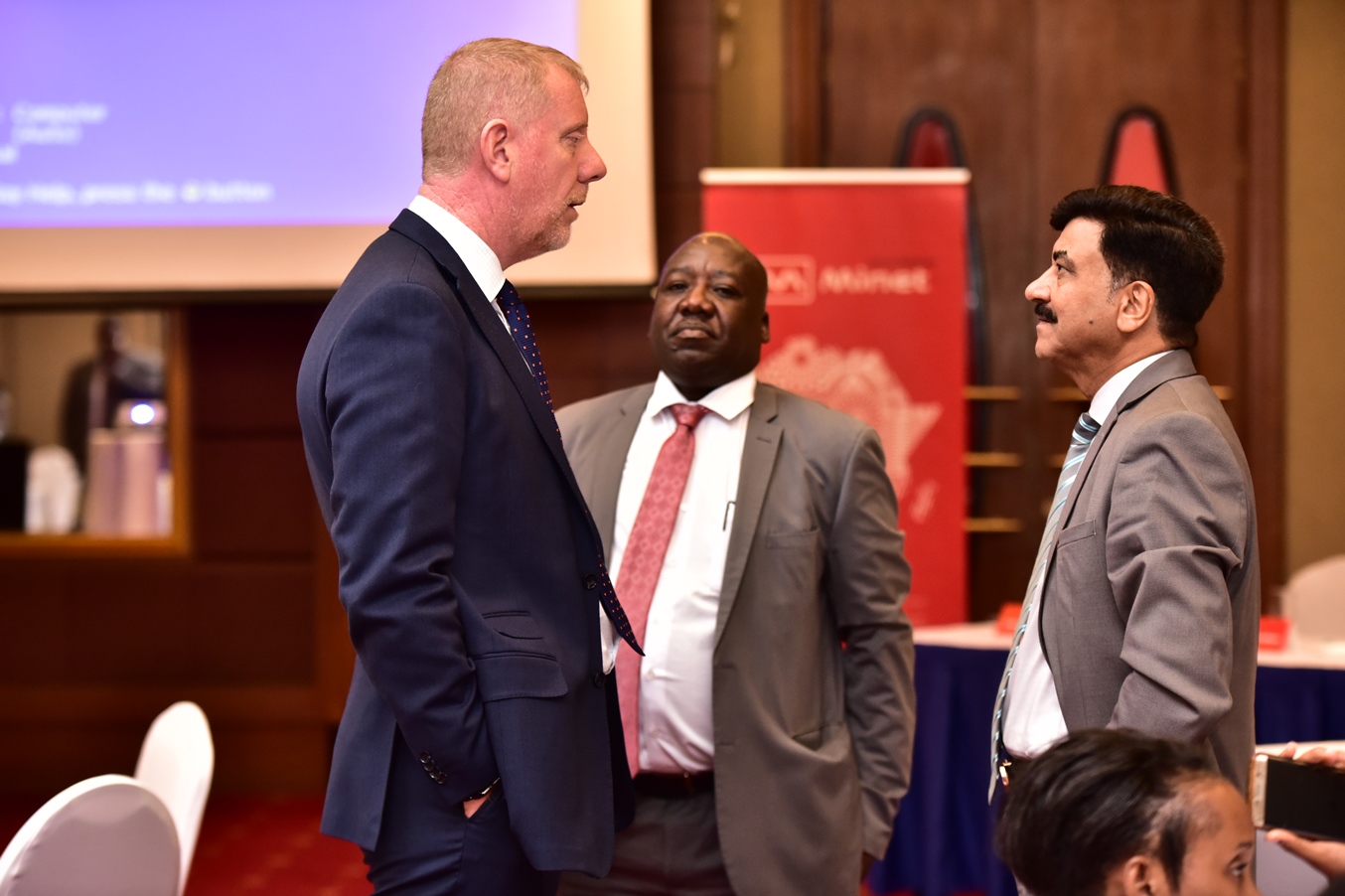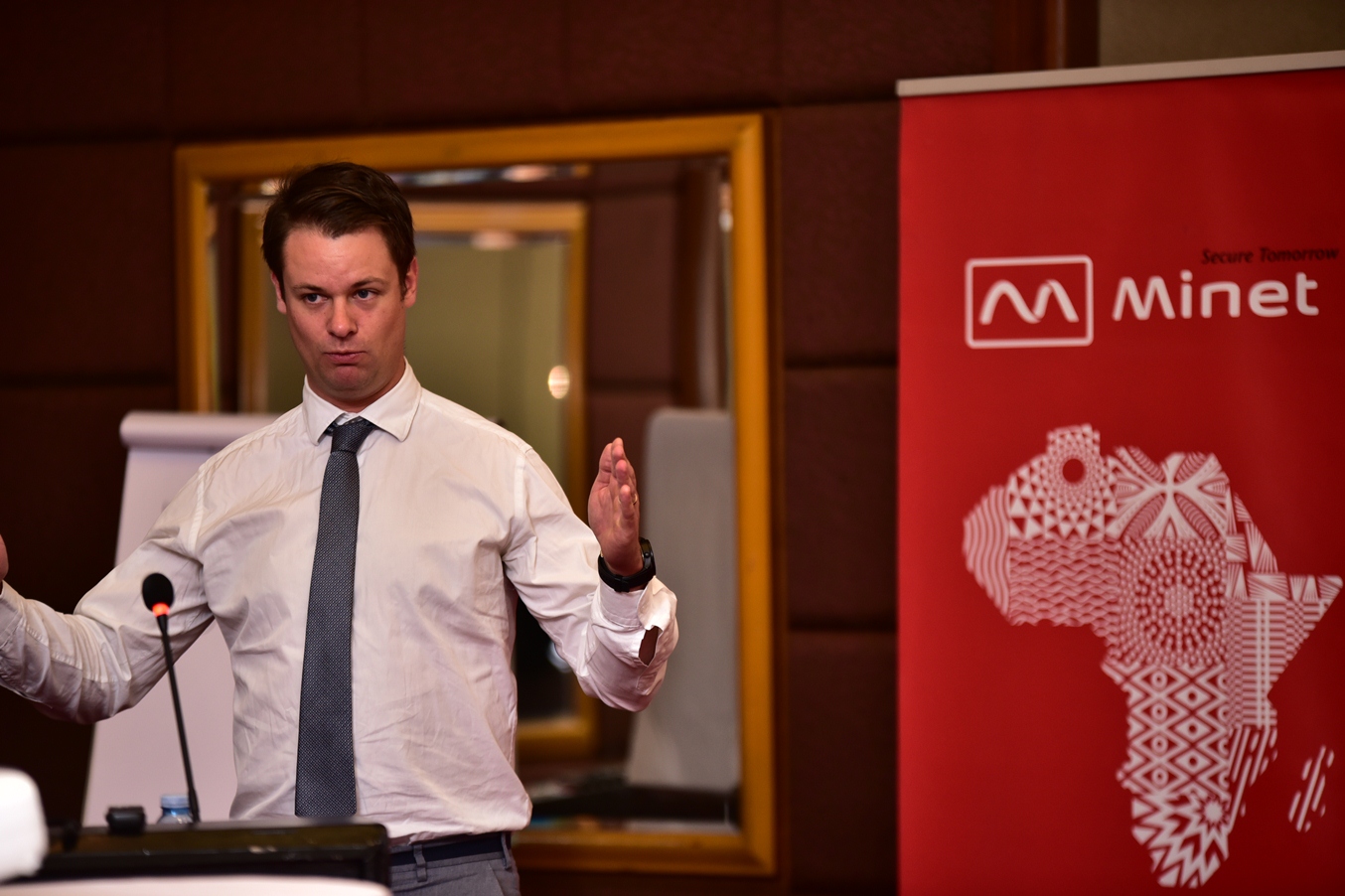Leading insurance broker, Minet Uganda Limited has together with its correspondent partner, AON from the U.K conducted an oil and gas training aimed at equipping insurers with knowledge on how to address oil and gas risks.
Over 40 insurance industry executives attended the workshop at Sheraton Kampala Hotel.
The training comes at a time when Uganda is commencing the stage of development and construction of oil production facilities as the country eyes first oil.
Maurice Amogola, the CEO, Minet Uganda, Limited said the training is part of the efforts by issuance firms to prepare their players for potential risks in the oil and gas sector.
“Just like other potential support sectors, insurance companies in Uganda are doing all they can, both privately and under their various umbrella bodies, to understand the oil industry as well as train their personnel to appreciate the risks that might manifest in this new market,” said Amogola.
“The training today, conducted by our expert partners from AON in London, is to help local Uganda insurers and reinsurers prepare themselves to ably cover the risks associated with the oil and gas sector,” he added.
Uganda’s oil and gas development and eventual production will see about USD 15bn to 20bn invested in the country in the next 3 to 7 years.
This humongous investment will especially be in development of in infrastructure like roads, an airfield, a refinery and an export pipeline through Tanzania to the international markets.
At the same time however, this presents a vast array of risks that if not well insured could be disastrous to not only Uganda, but also to the international oil companies and their suppliers and subcontractors that have already invested over USD 4 billion in Uganda’s nascent oil industry.
“While risks can be mitigated in various ways, insurance is very critical and must not be ignored by the government, the oil companies or their services providers. As an insurance consultancy, Minet’s job is to discuss with clients about the potential risks and subsequently connect them to suitable insurers to cover them,” says Amogola.
Cognizant of the huge risks associated with the oil and gas sector, the Uganda Insurance Association (UIA) has helped its members form the Insurance Consortium for Oil & Gas, Uganda (ICOGU), where up to 16 local insurance companies have raised specific capital to cover some of the risks under the oil and gas sector.
And for that risk that will not be manageable in-country, the consortium has partnered with other international insurers and reinsurers including: Munich Reinsurance, Swiss RE-Insurance, Chaucer, Beazley, Aspen and many others from the Lloyds market in London.
Insurance opportunities in the oil and gas sector include: oil well drilling equipment, rigs, in-hole equipment, bulk cargo, Construction All Risk (CAR), business interruptions, delayed start-up, waste in transit, works and infrastructure of disposal units, pipeline, heating equipment, oil and gas stocks, storage facilities, production storage facilities goods in transit and vessels and camps amongst others.
Just under USD 3bn is spent globally in insurance premium on oil and gas per year; hence re-insurance is inevitable.
“It is sensible for the local Uganda market to build up its capital base slowly and efficiently; and not take on more than it can afford to pay out in claims,” says, Mr Neil Genders, a director at AON, UK, who was one of the trainers.
Deepak Pandey, CEO, Jubilee Insurance, a trainee, hailed the workshop as coming at an opportune time as Uganda sought to grow its level of expertise in oil and gas insurance.
“Like with any other market however, we have to develop and grow steadily with the economy. As we retain more of the insurance premium in Uganda, our ability to cover the bigger part of the risk will grow year on year. So while our capacity may look small now, the key thing is that we have to start from somewhere. This is why the government of Uganda is insisting on Local Content participation,” said Pandey.
Uganda’s Local Content Policy 2018 commits to supporting participation of Ugandans in the oil and gas sector, through improving the country’s human resources, employment of local citizens and enterprises plus improve local competitiveness and in-country research, development and technology transfer to Ugandans.
Amogola said more training would be ongoing to keep the Ugandan insurance industry abreast of the happenings in the international oil market.
Minet (then trading as AON, Uganda) was very instrumental in Uganda’s exploration stage, where it offered insurance solutions to a number of clients.
